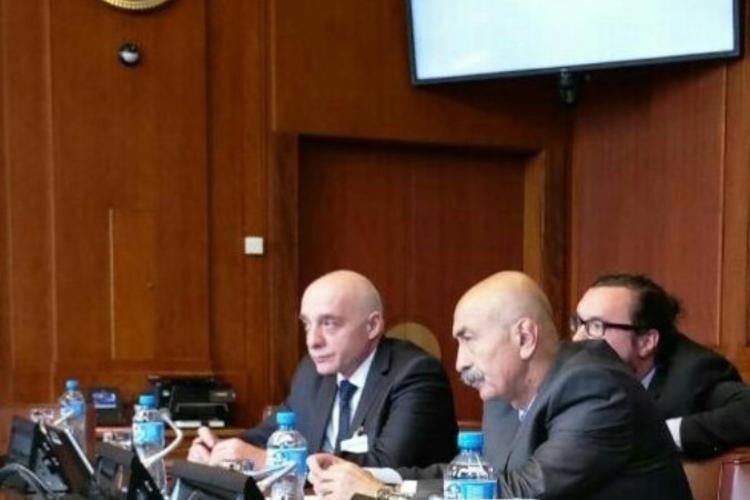Pertaining to the results of the 42ndround of the Geneva International Discussions
December 12-13, 2017 saw a regular round of the Geneva International Discussions on Security and Stability in Transcaucasia. A delegation from the Republic of South Ossetia, headed by Murat Dzhioev, the Plenipotentiary of the President of the Republic of South Ossetia on post-conflict settlement, delegations from the Republic of Abkhazia, Georgia, the Russian Federation and the USA as well as representatives of the EU, the UN and the OSCE took part in negotiations.
As usual, the discussions were held in two working groups: on security and humanitarian issues.
The main attention in Working Group I was paid to discussion of the joint statement of the participants on commitment to one of the basic principles of international law – non-use of force or threat of use of force in international relations. Adoption of this statement could allow conducting further work on legally binding bilateral agreements on non-use of force, which have firm international warrantees. During the hours-long discussion the participants almost managed to agree on the wording of the statement, however, members of the Georgian delegation who couldn't reach agreement, blocked adoption of the joint statement again.
Representatives of South Ossetia and Abkhazia expressed concern of NATO military enlargement in Georgia, the ongoing Georgian aggressive revanchist rhetoric in relation to South Ossetia and Abkhazia and the information about the Javelin missile system distribution to Georgia. Such steps taken by the USA and NATO in Georgia can not promote establishment of trust and advance in negotiation process in the format of the Geneva discussions.
The South Ossetian participants reiterated the offer made to the Georgian side to get to joint works on delimitation and demarcation of the state border between the Republic of South Ossetia and Georgia that would help to prevent numerous problems related to absence of corresponding agreements. The most serious attention was drawn to the provocative character of “guided tours” to the state border between the Republic of South Ossetia and Georgia, organized by Georgian authorities for representatives of international community.
During the discussion on security and stability at the border zone, the participants marked the productivity of the IPRM in general and the “hot line” in particular. At the same time serious concern was expressed about the shootings at border signs of the Republic of South Ossetia from Georgian village Tsitelubani, organized in October 2017, and about the insufficient work conducted by the EUMM members in relation with these incidents.
Issues related to the search of citizens of the Republic of South Ossetia, kidnapped and lost on territory of Georgia, were discussed as well. In this regard it was confirmed that Dusan Ignjatovic, the expert invited by the OSCE, would continue his work in 2018.
During the discussion on cultural heritage, South Ossetian participants once again have drawn attention to the problem of preservation of those Ossetian historical-cultural monuments that are located on territory of Eastern Ossetia, which currently is under Georgian control. The Ossetians, who were driven out, are not allowed to go there. Once again the Ossetian representatives called for Georgian side to allow experts to examine and evaluate the conditions of monuments of the Ossetian historical architectural heritage, located in Tyrsygom, Kudycom and the Kob hollow of Eastern Ossetia, which had become depopulated as a result of the anti-Ossetian policy of Georgian authorities.
The problem of refugees wasn’t discussed within the round, as renewal of negotiations on this subject would become possible only when Georgia gives up turning artificially the problem into a political issue and refuses of the practice of discussing problems behind the backs of other concerned parties.
The next meeting in Geneva is scheduled for March 2018.
December 14, 2017, Geneva
